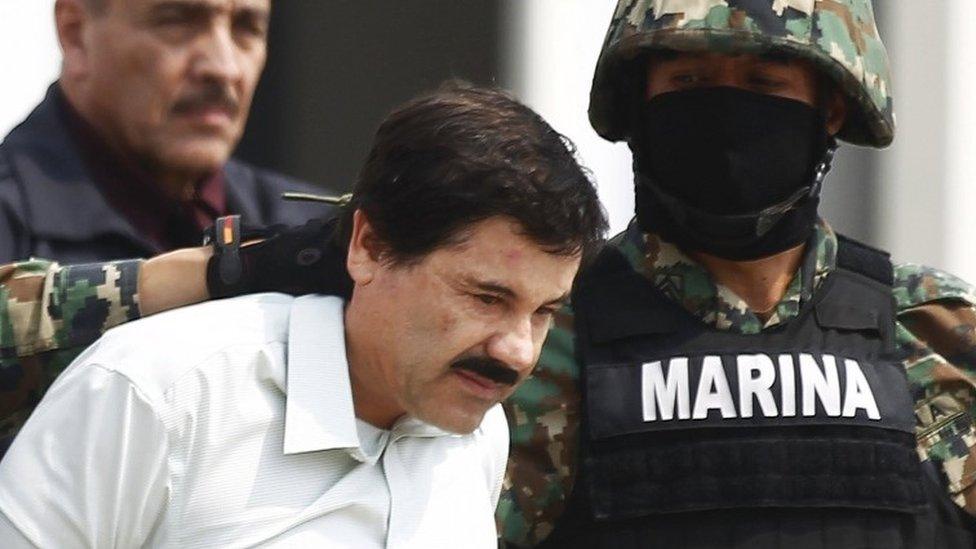'El Chapo' recaptured after jail break
- Published
Footage showed El Chapo being led onto a plane by marines - Katy Watson reports on ''a humiliating day for El Chapo''
Mexico's authorities have recaptured drug lord Joaquin "El Chapo" Guzman, six months after he escaped from a maximum-security jail.
In a post on Twitter, external, Mexican President Enrique Pena Nieto said: "Mission accomplished: We got him."
Guzman, one of the world's most-wanted drug lords, smuggled cocaine, heroin and methamphetamines to the US through the Sinaloa cartel he led.
He escaped from jail through a 1.5km (1 mile) tunnel dug in the showers.
President Pena Nieto described Guzman's arrest as a "victory for the rule of law" and said it showed Mexicans could have confidence in the state's ability to combat crime.
"There is no group that it is impossible to confront," he said.
Guzman was apprehended following a shoot-out with Mexican marines in Los Mochis, a coastal city in his home state of Sinaloa, in north-west Mexico, the president said.
Five people are thought to have been killed in the raid, which involved the army and navy as well as police.

Katy Watson, BBC Mexico and Central America reporter
The capture of El Chapo will be a big boost to President Enrique Pena Nieto's administration.
The escape last July of Mexico's most-wanted criminal was politically embarrassing. It made the government look stupid at best and institutionally corrupt at worst - many people doubted El Chapo's escape could have happened without inside help.
It was made worse too by the fact that the president had previously said that if he escaped again it would be unforgivable.
Mr Pena Nieto has called the arrest "mission accomplished" - hopefully it is third-time lucky for the government with El Chapo remaining behind bars and the president's legacy not being that of allowing a violent criminal to escape.

The US congratulated the Mexican government but did not indicate whether prosecutors would seek Guzman's extradition.
In a statement, Attorney General Loretta Lynch said Guzman had caused "significant violence, suffering and corruption on multiple continents".
Guzman's July escape was his second - he was first arrested in Guatemala in 1993 and escaped from Puente Grande jail in 2001, reportedly in a laundry basket after bribing officials.
He was on the run for 13 years before being held again in 2014.
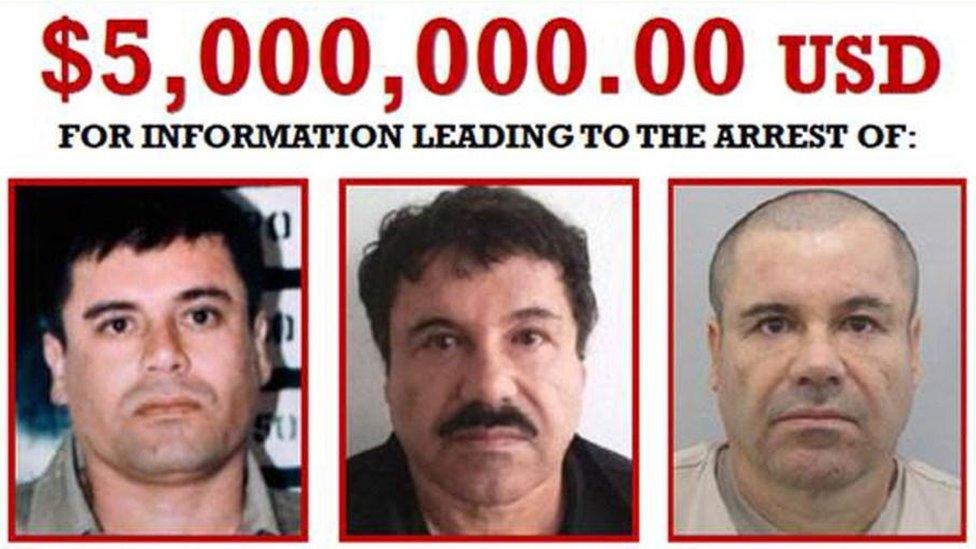
Guzman was one of the world's most wanted drug traffickers
CCTV footage of his 11 July escape showed Guzman pacing his cell several times before heading into the shower area and disappearing at the maximum-security Altiplano jail.
A huge manhunt followed, with flights suspended at the nearby airports. The US government had offered a $5m (£3.2m) reward for information leading to his capture.
Authorities located him several days ago based on reports that he was in the Los Mochis area.
In October, Mexican officials said they had "broken up" and arrested the group responsible for helping him escape.
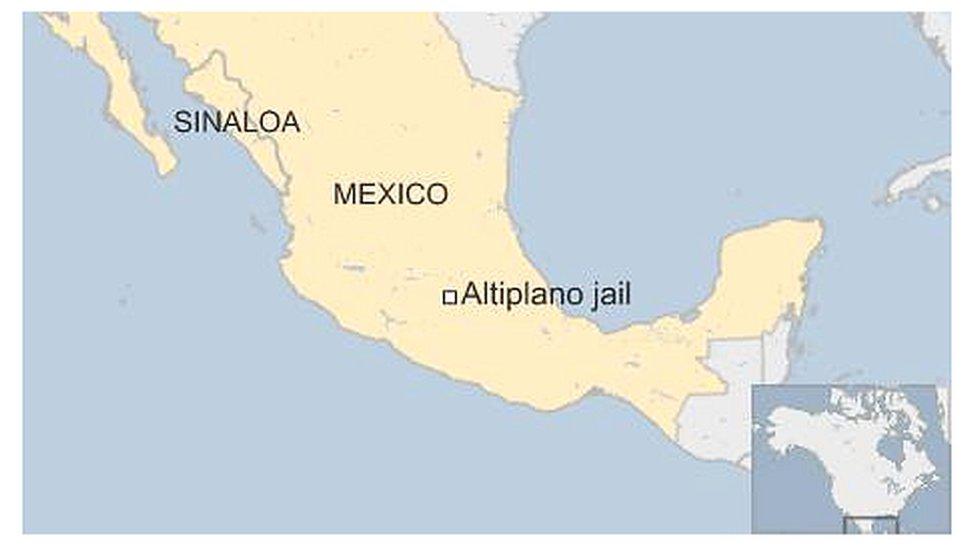
Guzman's wealth is estimated at $1bn.
Despite being the leader of one of the world's most powerful and violent drug cartels, Guzman was seen by some in Sinaloa - where there are few job opportunities - as a modern-day Robin Hood figure who could offer more security to people than the government.
Following his escape, shopkeepers began selling souvenirs such as baseball caps branded with "El Chapo" (Guzman's nickname, meaning "Shorty").
- Published17 October 2015
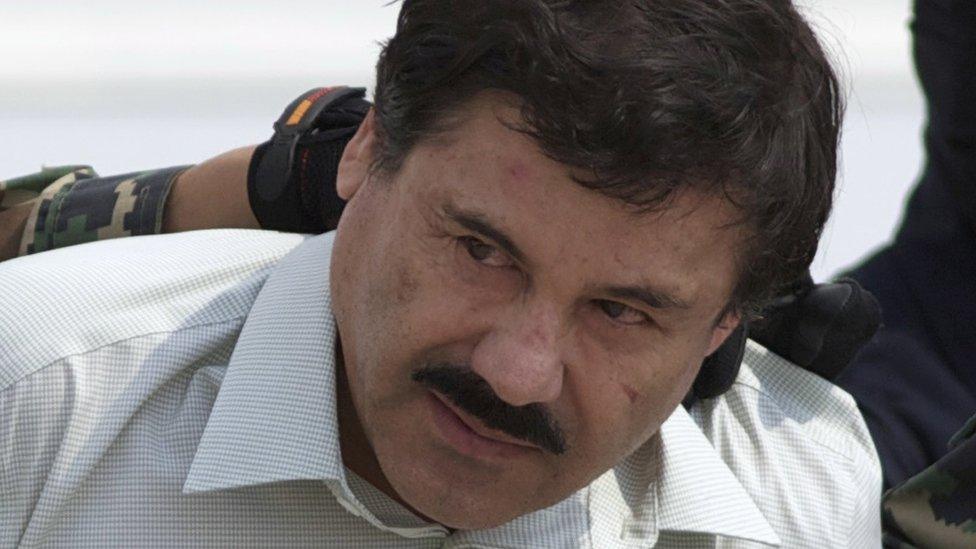
- Published8 September 2015
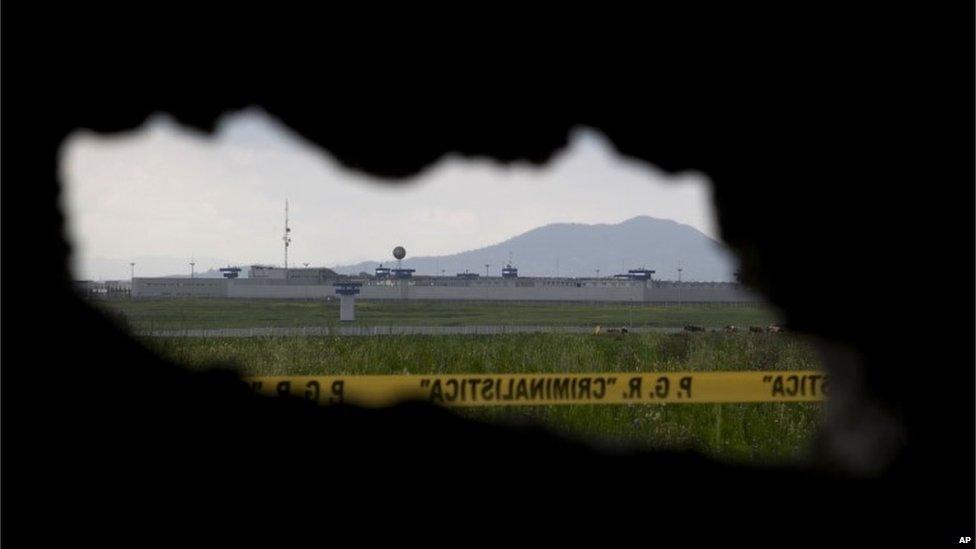
- Published13 August 2015
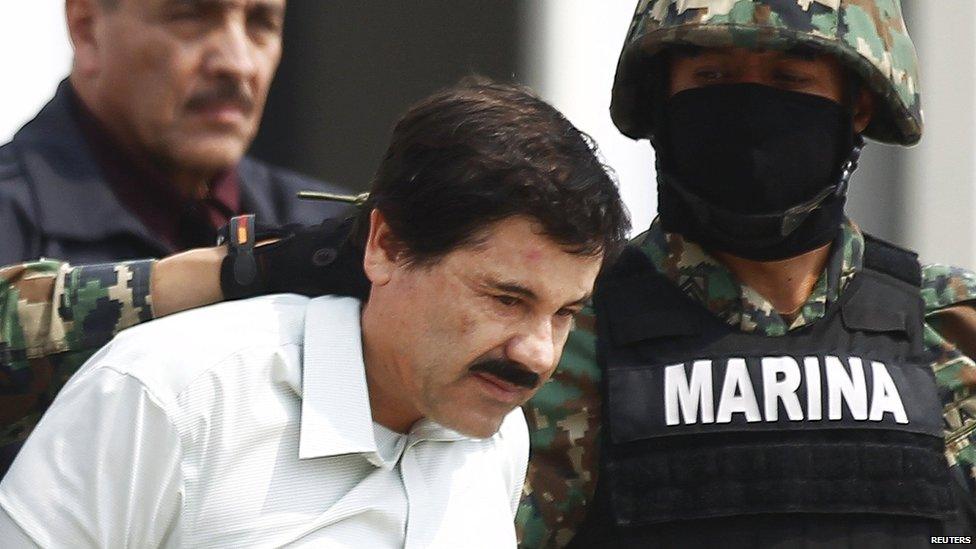
- Published12 July 2015
